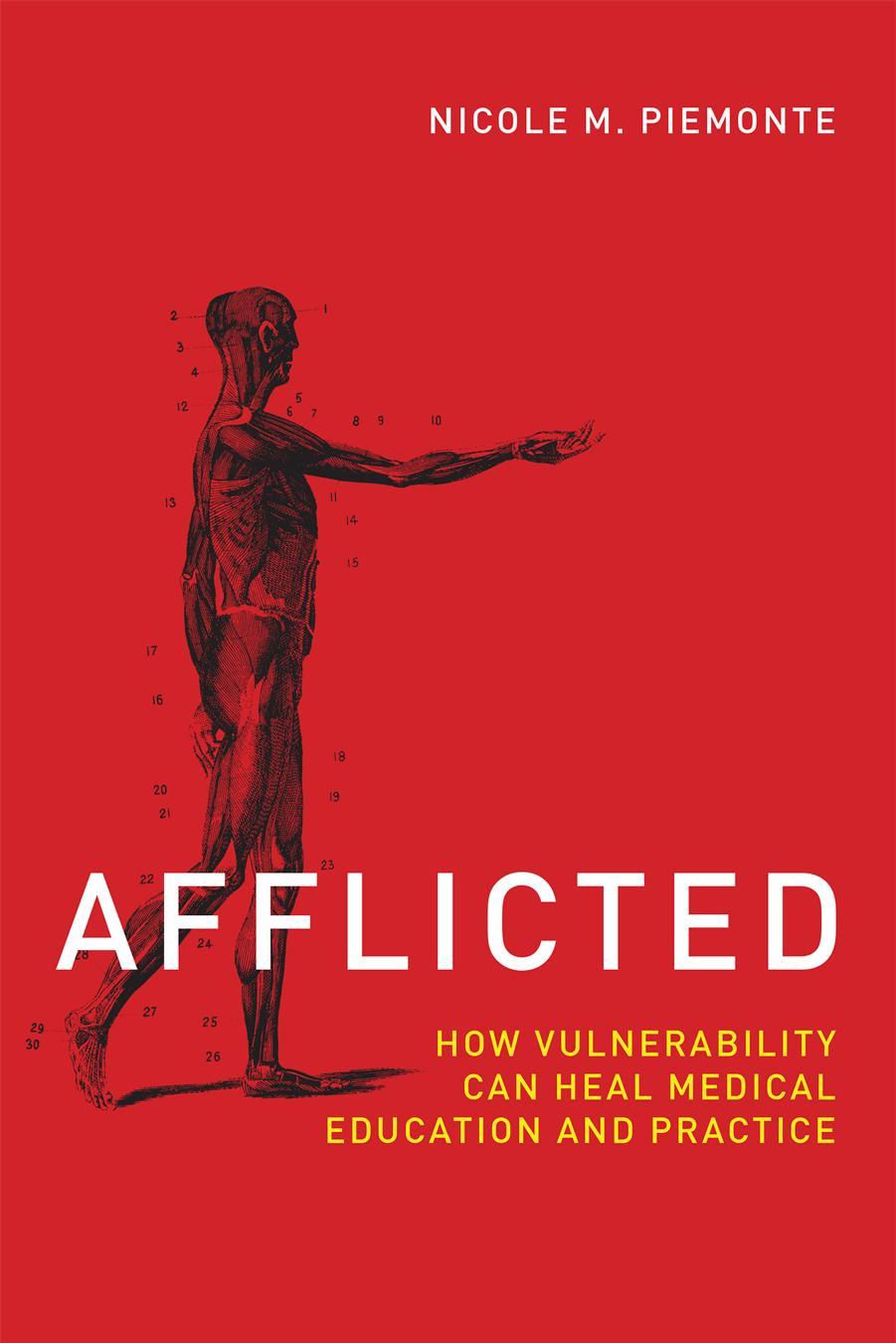Afflicted: How Vulnerability Can Heal Medical Education and Practice by Nicole M. Piemonte

Author:Nicole M. Piemonte
Language: eng
Format: epub, pdf
Tags: medicine; medical education; healthcare education; medical epistemology; medical pedagogy; medical school; medical student; medical training; hidden curriculum; residency; vulnerability; Medical Humanities; Health Humanities; Narrative Medicine; burnout; resiliency; mindfulness; ethics; philosophy; existential; Heidegger; Levinas; Kierkegaard; Bakhtin; physician formation; medical professionalism; professional identity formation; suffering; healthcare; ethics; compassion; empathy patient care; doctor-patient relationship; healing; death; dying; hospice care; palliative care; narrative; literature; healer; nursing; pre-medical education, Medical, General, Ethics & Moral Philosophy, Ethics, Education, Philosophy
Publisher: MIT Press
Published: 2018-01-12T00:00:00+00:00
4 The Formation of Medical “Professionals”
It’s easier to train technicians than it is to train healers.
—Dennis H. Novack, Ronald M. Epstein, and Randall H. Paulsen, “Toward Creating Physician-Healers”
My somewhat extensive philosophical investigation of the clinical encounter in chapters 2 and 3 does not mean to suggest that those seeking a remedy for what ails modern medicine and medical education need to study fundamental ontology or existential phenomenology. Far from it. Heidegger himself says that “anyone can follow the path of meditative thinking in his own manner and within in his own limits.… [M]editative thinking need by no means be ‘high-flown.’ ”1 What the thinkers whose philosophies I have drawn on are calling for is not abstract thought experiments or rigorous analytical descriptions, but rather a consideration of our more primordial selves, a return to the fundamental aspects of being human that we all share. In telling us what patients really need is for “others to share in recognizing with them the frailty of the human body,” Arthur Frank is calling for simplified clinical encounters, wherein disease talk is limited and clinicians are willing to face the realities of being human, recognizing that confrontation with suffering will neither paralyze nor overwhelm them.2 Indeed, doctors might even begin to see that entering into the suffering of their patients can deepen their ways of being-in-the-world and their being-with-others. The humility that comes with recognizing that, as humans, we are all flawed and all suffer in our own ways can cultivate compassion and uncover the common bonds between us.3
It might be obvious that patients’ suffering is intensified when clinicians and students fail to see the potential for such bonds and choose instead to distance themselves from the reality of human frailty by remaining “objective” and detached. But we cannot overlook the fact that healthcare professionals and students are, in many instances, suffering as well. Ignoring the reality of sickness and suffering and the fragility of the human condition can be exhausting, and not giving voice to these issues can distance us from ourselves. As Thomas R. Cole, Nathan S. Carlin, and Ronald A. Carson point out:
Under today’s stressful conditions of practice, physicians, nurses, allied health professionals, biomedical scientists, and students all find themselves at risk for becoming alienated or separated from the ideals that drew them to healthcare in the first place. These conditions lead to high rates of burnout, depression, impairment, and even suicide. Hence, the re-humanization of medicine involves enhancing, restoring, and attending to the humanity of students and caregivers as well as patients.4
Despite such apparent suffering, the culture of contemporary medicine is entrenched so deeply in calculative understandings of clinical care that the affective experience of practicing clinicians and the personal development of future clinicians are largely ignored. One of the first steps in cultivating nonindifference and helping physicians and students return to themselves is acknowledging the ways they are affected by patient care and the culture of modern medicine.
Download
Afflicted: How Vulnerability Can Heal Medical Education and Practice by Nicole M. Piemonte.pdf
This site does not store any files on its server. We only index and link to content provided by other sites. Please contact the content providers to delete copyright contents if any and email us, we'll remove relevant links or contents immediately.
Periodization Training for Sports by Tudor Bompa(8271)
Why We Sleep: Unlocking the Power of Sleep and Dreams by Matthew Walker(6725)
Paper Towns by Green John(5190)
The Immortal Life of Henrietta Lacks by Rebecca Skloot(4588)
The Sports Rules Book by Human Kinetics(4386)
Dynamic Alignment Through Imagery by Eric Franklin(4217)
ACSM's Complete Guide to Fitness & Health by ACSM(4060)
Kaplan MCAT Organic Chemistry Review: Created for MCAT 2015 (Kaplan Test Prep) by Kaplan(4012)
Livewired by David Eagleman(3772)
Introduction to Kinesiology by Shirl J. Hoffman(3769)
The Death of the Heart by Elizabeth Bowen(3621)
The River of Consciousness by Oliver Sacks(3604)
Alchemy and Alchemists by C. J. S. Thompson(3520)
Bad Pharma by Ben Goldacre(3427)
Descartes' Error by Antonio Damasio(3278)
The Emperor of All Maladies: A Biography of Cancer by Siddhartha Mukherjee(3162)
The Gene: An Intimate History by Siddhartha Mukherjee(3098)
The Fate of Rome: Climate, Disease, and the End of an Empire (The Princeton History of the Ancient World) by Kyle Harper(3067)
Kaplan MCAT Behavioral Sciences Review: Created for MCAT 2015 (Kaplan Test Prep) by Kaplan(2986)
